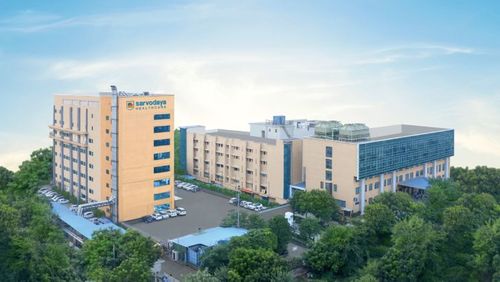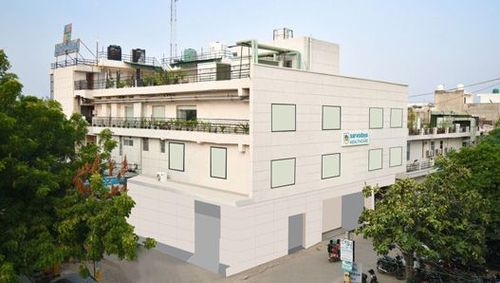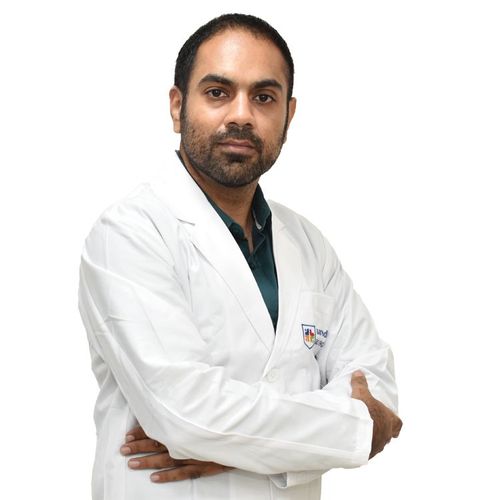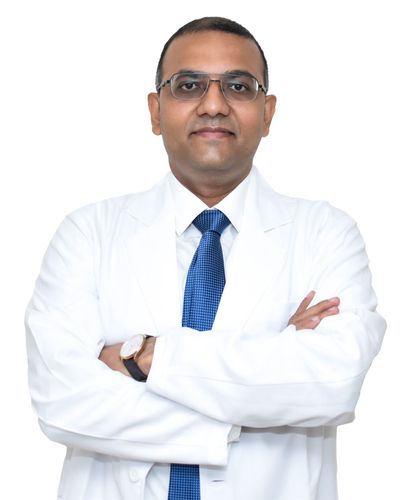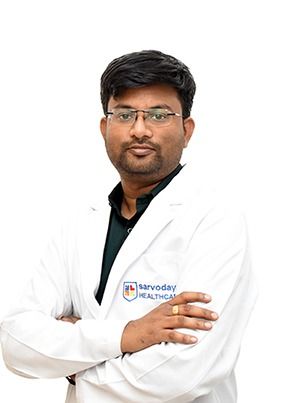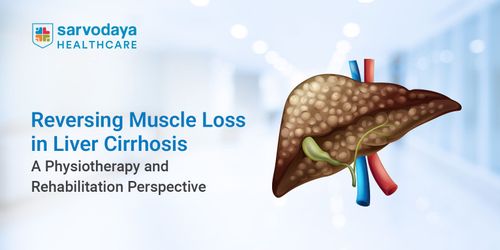Overview
Liver Cirrhosis is a long-term condition where healthy liver tissue gradually turns into scar tissue, affecting the liver’s ability to function normally. It develops slowly and may begin with mild symptoms before progressing to more noticeable health changes. With timely diagnosis and structured care, many patients can manage symptoms, protect remaining liver function and improve long-term well-being.
At Sarvodaya Hospital, we offer advanced liver cirrhosis treatment guided by expert specialists recognised among the best gastroenterologists in Delhi, Faridabad and Noida. Using modern diagnostics and personalised treatment plans, our team helps patients understand their condition clearly and supports them through every stage of recovery.
Symptoms of Liver Cirrhosis
- Persistent fatigue or weakness
- Loss of appetite or unexplained weight loss
- Bloating or abdominal swelling
- Yellowing of the skin or eyes (jaundice)
- Swelling in legs or feet
- Easy bruising or bleeding
- Persistent nausea or digestive discomfort
- Dark urine or pale stools
- Itching of the skin
- Difficulty concentrating or confusion
Causes of Liver Cirrhosis
- Long-term liver inflammation
- Chronic hepatitis infections
- Non-alcoholic fatty liver disease
- Alcohol-related liver damage
- Metabolic or genetic liver disorders
- Autoimmune liver disease
- Repeated episodes of liver injury
- Bile duct diseases
- Obesity-related liver strain
- Exposure to liver-damaging toxins
Diagnosis of Liver Cirrhosis
Accurate diagnosis helps determine the stage of cirrhosis, assess liver health and plan personalised treatment. At Sarvodaya Hospital, one of the best gastroenterology hospitals, we use advanced tools for precise evaluation.
- Liver Function Tests: A group of blood tests that measure enzyme levels, bilirubin and proteins, helping identify liver inflammation, impaired function and early progression of liver cirrhosis.
- Ultrasound Abdomen: A non-invasive imaging scan that identifies liver size, texture, fat buildup and early signs of scarring, helping detect cirrhosis-related structural changes.
- Fibroscan (Elastography): A modern test that measures liver stiffness to assess scarring severity, offering accurate staging of cirrhosis without invasive procedures.
- CT or MRI: High-resolution imaging that provides a detailed view of liver structure, detects complications and helps plan appropriate treatment strategies.
- Complete Blood Count: Assesses anaemia, clotting problems and immune changes that commonly accompany moderate or advanced liver cirrhosis.
- Metabolic & Autoimmune Panel: Evaluates underlying metabolic, immune or genetic causes contributing to ongoing liver inflammation and cirrhosis progression.
Treatment for Liver Cirrhosis
- Medication-Based Treatment: Medicines used to reduce inflammation, control fluid buildup, improve digestion and support healthier liver function across different stages of cirrhosis.
- Nutritional Support Therapy: Personalised diet plans and supplements addressing nutrient deficiencies, improving metabolism and supporting overall liver strength.
- Management of Complications: Targeted interventions to treat ascites, infections, jaundice, bleeding risks and other complications commonly associated with advanced liver cirrhosis.
- Lifestyle & Habit Correction: Guidance on alcohol cessation, weight control, diet changes and stress reduction to slow disease progression and protect remaining liver tissue.
- Minimally Invasive Procedures: Techniques such as paracentesis help remove accumulated abdominal fluid, improving comfort and reducing health risks in advanced cases.
- Continuous Monitoring: Regular follow-ups and liver tests help track progress, adjust treatment plans and maintain stable liver health for long-term wellbeing.
Prevention & Lifestyle Modification
Healthy habits and early care help prevent liver damage and reduce the risk of cirrhosis progression. Preventive changes support long-term liver strength.
- Avoid Alcohol Completely: Stopping alcohol use protects liver cells, reduces inflammation and prevents further scarring, especially in patients with early-stage or progressing cirrhosis.
- Healthy Body Weight: Maintaining a stable weight reduces fat accumulation, protects liver tissue and supports metabolic balance for better liver health.
- Nutritious Diet: A balanced diet rich in vegetables, fruits, whole grains and proteins enhances immunity and lowers metabolic stress on the liver.
- Vaccinations: Hepatitis vaccinations prevent viral infections that can worsen liver inflammation and increase the risk of cirrhosis.
- Safe Hygiene & Practices: Avoiding contaminated food, unsafe needles and unprotected contact reduces the risk of additional liver infections.
- Routine Liver Check-ups: Early evaluation allows timely identification of inflammation, fibrosis or metabolic changes that could lead to cirrhosis.
Pre & Post Treatment Lifestyle Modifications
Pre-Treatment Modifications:
- Balanced Meal Routine: Start a nutrient-rich diet that supports digestion, regulates metabolism and reduces strain on the liver before treatment begins.
- Consistent Hydration: Ensure adequate daily water intake to help flush toxins, aid nutrient absorption and stabilise liver function.
- Light Physical Exercise: Engage in gentle activities like walking to boost circulation and maintain energy levels without putting pressure on the liver.
- Medication Review: Update your doctor about all ongoing medications and supplements to avoid interactions during treatment planning.
- Structured Rest: Maintain a consistent sleep schedule to lower fatigue, support hormonal balance and assist natural liver repair.
- Baseline Monitoring: Track symptoms such as swelling, appetite changes or fatigue for timely evaluation and early intervention.
Post Treatment Modifications:
- Balanced Nutrition Continuation: Follow a wholesome, liver-friendly diet to aid recovery, support metabolism, and improve energy levels.
- Proper Hydration: Continue drinking enough water daily to promote detoxification and maintain stable liver function.
- Gentle Daily Movement: Resume light exercises under guidance to regain strength and support overall wellbeing.
- Medication Compliance: Take prescribed medicines regularly to manage symptoms, control inflammation and support healthy liver activity.
- Rest and Recovery: Ensure structured rest and good sleep to enhance healing and reduce post-treatment fatigue.
- Regular Monitoring: Attend scheduled evaluations and liver function tests to track progress, detect any changes early and adjust treatment plans accordingly.


